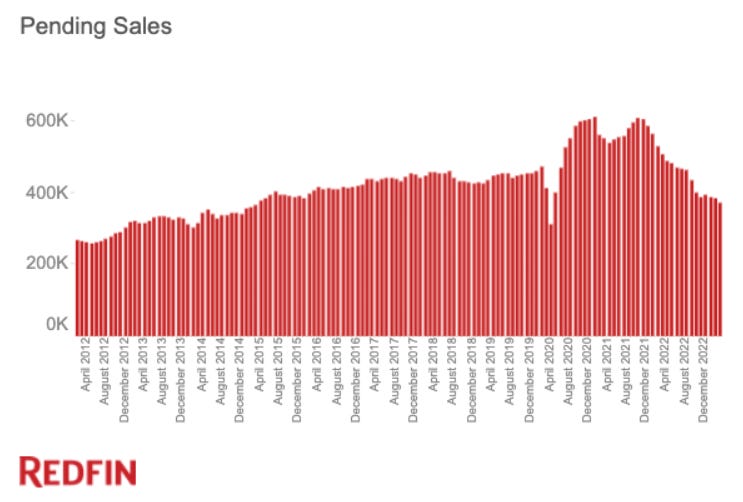Thoughts From The Divide – Hangovers and Their Causes
“We are witnessing a fragmentation of the global economy”
Christine Lagarde gave a sobering speech on “Central banks in a fragmenting world” this week, and there were several takeaways. First, she noted that splintering of trade partnerships and supply chains not only can lead to “the risk of repeated supply shocks” but also comes with the potential for government responses to “accelerate fragmentation as firms… adjust in anticipation [to government legislation]”. Second, Lagarde lays out some potential policy responses that might help reduce the costs of “fragmentation”. Unfortunately, thus far, the bulk of the policy response is precisely what her speechwriters warn against: “… if fiscal policy instead focuses mainly on supporting incomes to offset cost pressures (in excess of temporary and targeted responses to sudden large shocks), that will tend to raise inflation, increase borrowing costs and lower investment in new supply”. A reminder of some “temporary and targeted responses”.
In the meantime, policies focused “on removing supply constraints… such as securing resilient supply chains or diversifying energy production” appear to be still some way off. One energy producer remarked that “the imposition of punitive windfall taxes and a lack of fiscal certainty” have made the UK and Norway “difficult places to commit capital and ensure the continuity of shareholder returns”.
The good news is that the EU was able to beat its “target to cut gas use 15% in the coldest months” this winter, dropping 18% thanks in part to “unusually warm winter weather, including spells of record-breaking temperatures”. Less positively, “industries curbing production in response to high gas costs” was another critical element, as we have discussed before.
“… fewer buyers mean sellers need to list their homes for less money to attract the house hunters who remain”
In another real estate-related twist, Redfin noted that the median home sales price dropped 3.3% YoY, “the largest year-over-year drop since 2012”. The Redfin report went on to explain that “pandemic boomtowns and pricey Bay Area markets led the price declines”, with Boise, ID taking the “top” spot among the metro areas with a 15.4% drop. A real estate agent quoted in the report offered some color: “There’s this fear that everything will crash. There are bank failures, inflation, recession fears, mortgage-rate volatility, a war in Ukraine, spy balloons—some people are wondering if they should pull their money out of the bank and park it in a safe rather than spend it on a new home.”
“It flooded the banking system with deposits”
Former Fed member Bill Dudley might not have meant to point fingers, but in his recent Op-Ed discussing the banking crisis, he suggested we “don’t forget easy money”, saying that in its “complete review of the recent rash of bank failures”, the Fed “will probably remain silent… on the extent which the Fed’s monetary stimulus and subsequent tightening might have contributed to the crisis” even though “the topic deserves attention”. Enjoy stimulus responsibly? Dudley didn’t go full turncoat and noted that the framework was why “the Fed would ultimately have to raise rates faster and higher than under its prior, more preemptive regime” and said that QE “also played a role” when “it flooded the banking system with deposits, which banks often invested in… longer-term securities at extremely low yields. This ensured that when the Fed later tightened, causing yields to rise and prices to fall, it would generate large mark-to-market losses at the banks”. How could any banker resist the temptation to lend long (to the Federal government) and borrow short (from depositors)?
“Lower freight volumes, moderating pricing trends and inflationary cost pressures”
Looking on the bright side for banks (with offside duration positions), in the part of the economy where the rubber meets the road, things aren’t looking too great. J.B. Hunt noted in its earnings call that “Volumes in the quarter declined 5% year-over-year, and by month were down 2% in January, down 4% in February and down 8% in March”. This jibes with the ATA’s Truck Tonnage Index, which (on a seasonally adjusted basis) dropped 5.4% in March. And corrugated box shipments, “a good barometer for goods demand”, sank in 2022, and a further “steep decline… appears likely”. And as far as the infamous credit crunch goes, not only did the San Francisco Fed note in the latest Beige Book that “lending activity declined substantially”, but also the CEO of a Virginia-based community bank noted that while the bank had come into 2023 expecting to extend about half of the credit it did in 2022, “Based on current events… I now think it gets cut in half again”.
In case you missed it...
We are hosting our first annual Global Macro Summit in Vail, Colorado, from September 26th - 29th.
Attendees will have the opportunity to connect with macro experts from around the globe, participate in engaging breakout sessions, enjoy VIP experiences, and more. PLUS, you'll have the option to bring a plus one to enjoy the beautiful fall scenery, dinners, and excursions together.
CLICK HERE to sign up for early access to registration and special pricing.
On The Margin Podcast Feat. Julian Brigden - April 19
“Progressing Through The Credit Tightening Cycle” – Julian Brigden joins the show to discuss the process of tightening credit in the banking system and what it will mean for the economy and markets. Julian then explores his cyclical vs secular outlook for the U.S Dollar, and in turn, U.S equities.
TGH Live Trading Feat. Julian Brigden - April 20
In this live stream, Julian is asked how much lower he thinks the dollar can go. Julian believes 20-30% over time as money flows into select International Markets. Tune in for more!





